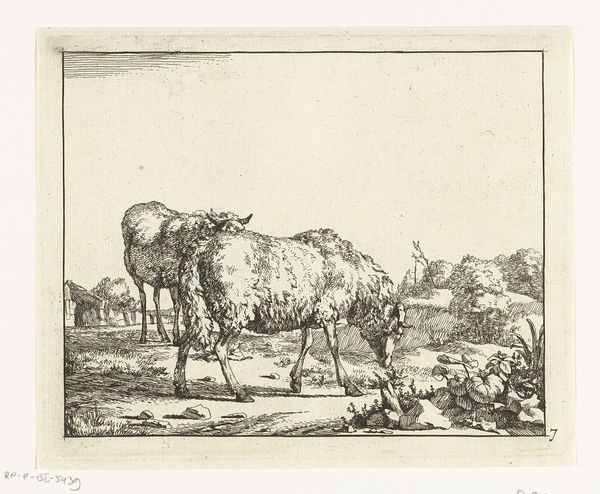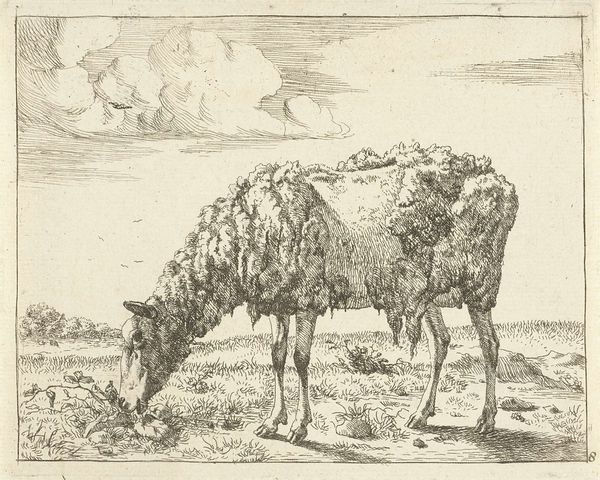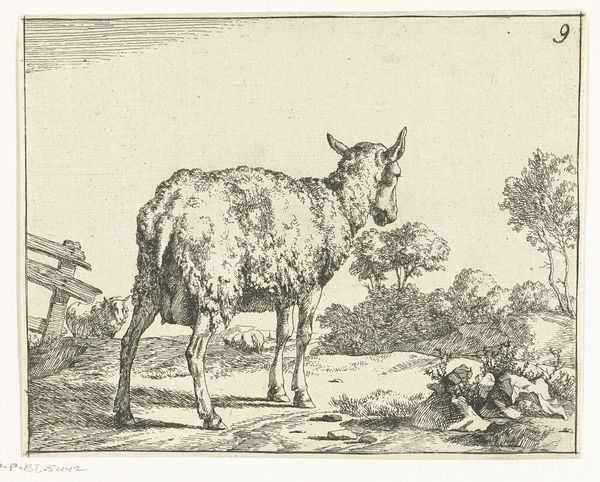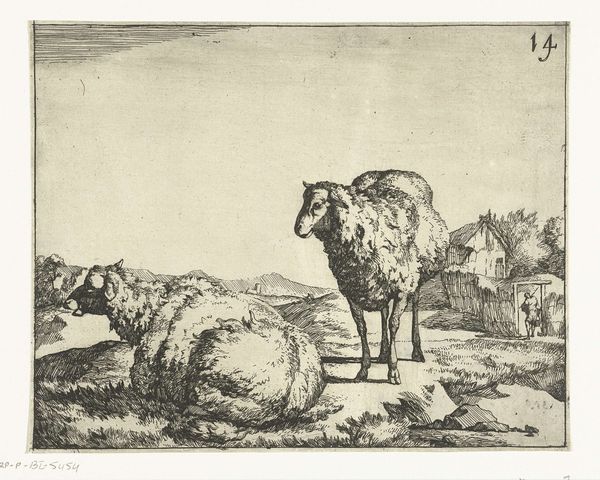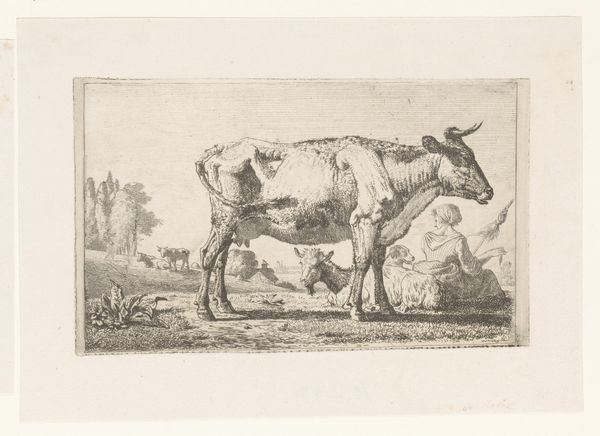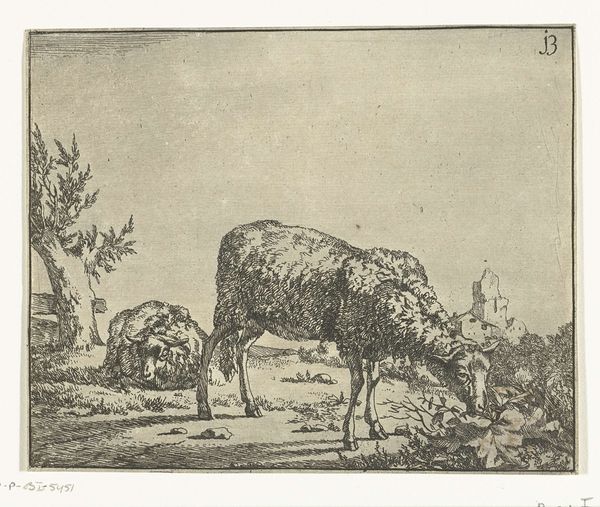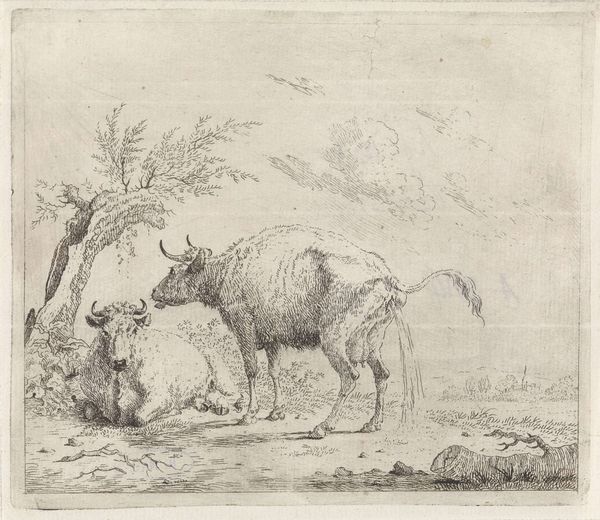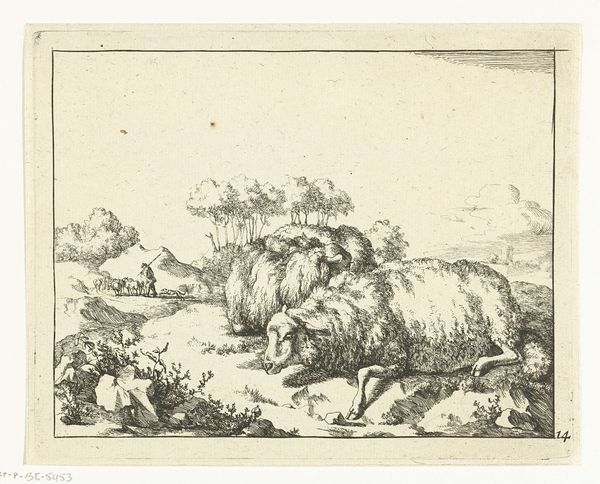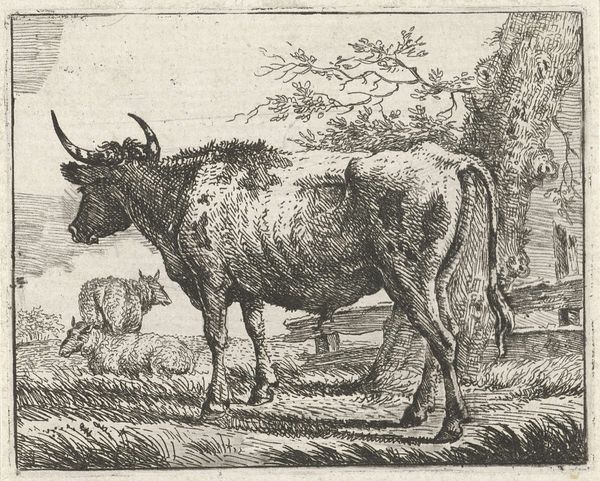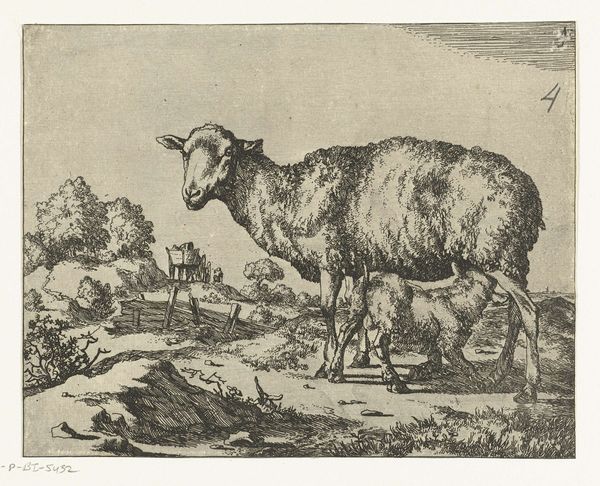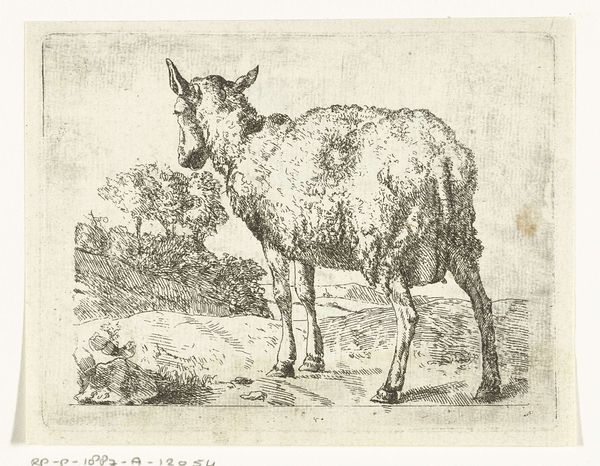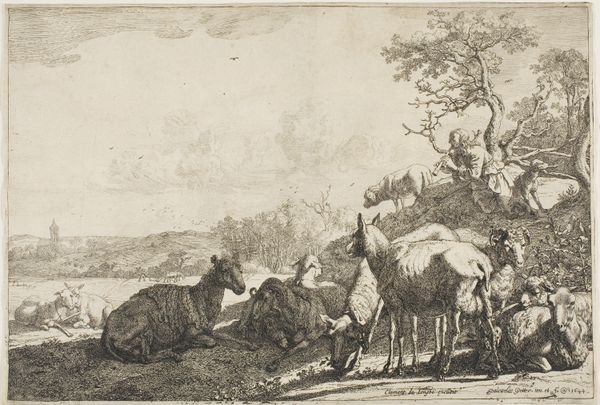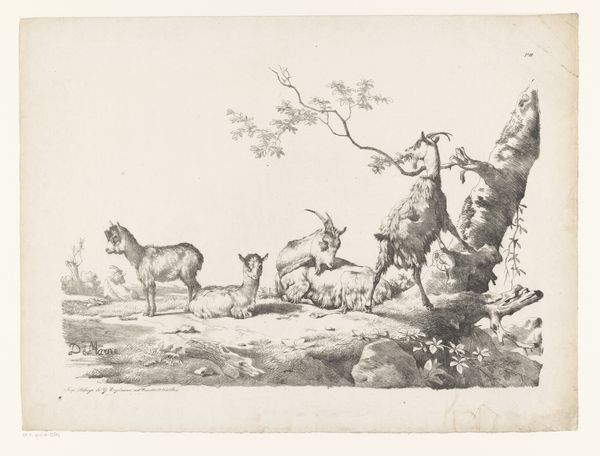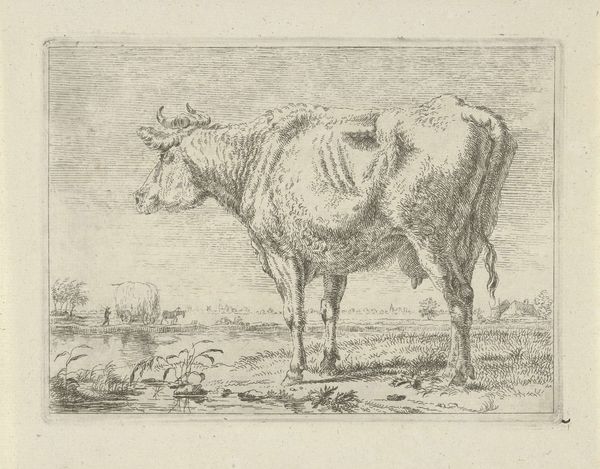
drawing, print, etching
#
drawing
#
baroque
# print
#
etching
#
landscape
#
genre-painting
Dimensions: height 118 mm, width 146 mm
Copyright: Rijks Museum: Open Domain
Marcus de Bye made this etching, *Pissend schaap*, which translates to 'Pissing Sheep', sometime in the 17th century, using an etching technique on paper. Etching is an intricate process that involves coating a metal plate with a waxy, protective layer, drawing an image into this layer with a needle, then immersing the plate in acid. The acid bites into the exposed lines, creating grooves that hold ink. The plate is then cleaned, inked, and pressed onto paper, transferring the image. The deliberate nature of etching allowed de Bye to achieve fine detail, evident in the sheep's woolly coat. This level of detail invites a close look, turning a mundane subject into a captivating study. The printmaking process allowed for the wide dissemination of images, making art accessible to a broader audience. The labor-intensive work of creating each print underscores the value placed on craftsmanship during this period. The subtle lines and textures – all of which reflect the cultural values around labor, skill, and accessibility in artmaking – blur the lines between art and craft.
Comments
No comments
Be the first to comment and join the conversation on the ultimate creative platform.
